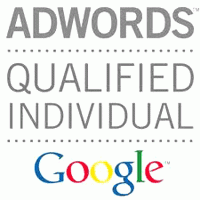About Inbound Marketing
The Past: Outbound Marketing
It used to be that all marketing was outbound marketing. Once you had designed and priced your product or service you went out and spent a bunch of money telling your customers about it. That worked for a long time and, in some cases, continues to work, although today’s consumers are more likely to tune out interruptive marketing messages.
Consider what has happened to the traditional outlets you have been using for outbound marketing:
- Television is incredibly fragmented, with hundred of stations competing for eyeballs. The value of commercial spots has been diluted by Tivo, on-demand viewing and other new technologies. TV is great as a branding medium but it tends to deliver impulse buyers and not the developed leads you need to be successful
- Radio is also fragmented and it’s nowhere near the universal selling tool it used to be. There are many more options for on-the-go entertainment and information – smart phones and iPods and tablets and who knows what’s next
- Print is dying. Newspapers are struggling for survival; magazines are focused on micro-niches and how about Yellow Pages…when did you last use one?
- Direct mail and e-mail both have extremely low response rates and it can take considerable time and effort to build or acquire lists that get you even a meager ROI
- Trade shows and exhibitions, although they may have their value, have evolved into dinosaurs -- expensive, time-consuming, overblown dinosaurs -- that can gobble up marketing budgets with questionable returns
The Future: Inbound Marketing
 The internet is most definitely the future of marketing and inbound marketing is the future of the internet. Let’s face it, when any of us needs information on a product or service, what do we do? We Google it. And, when those Google results pop up, what do we look for? The site with the most information to offer, information that will make us better, more educated consumers that make wise choices in the products and services we buy.
The internet is most definitely the future of marketing and inbound marketing is the future of the internet. Let’s face it, when any of us needs information on a product or service, what do we do? We Google it. And, when those Google results pop up, what do we look for? The site with the most information to offer, information that will make us better, more educated consumers that make wise choices in the products and services we buy.
That’s what inbound marketing is all about – educating consumers, building trust and increasing comfort levels:
- Positioning yourself or your business as an expert and the source of all knowledge in your field;
- Championing transparency and the freedom of what was thought to be “secret” information to consumers so they can make better buying decisions;
- Creating an aura of trust around your business that inspires consumer confidence.
If you know only one thing about internet marketing, you know that Google owns two-thirds of all internet searches so what Google wants, Google gets. It used to be that Google wanted nothing but optimized meta-tags and strategically placed keywords to bestow fame and fortune on the web but Google and its users have gotten more sophisticated. Google is now looking past websites that just meet technical requirements because customers are now looking for actual value, real content and helpful information before they put their trust – and their money – into the hands of any internet marketer.
So, inbound marketing isn’t a technical discipline to hand over to the IT department. It’s a strategic amalgam of sales, marketing and technology that treats web-searching customers like humans, not robots, and delivers qualified leads to marketers at 61% below the cost of outbound techniques. It also eliminates the need to chase after backlinks from other sites because quality content will attract more valuable links organically. These links have the biggest influence on your organic search rankings.
Inbound marketing is best understood using the concept of the funnel, where a large number of prospects enter the top and are pushed through to convert into more profitable customers at the bottom. Here’s how the funnel works:
- Content-rich web presence attracts quality prospects to your site
- Directed content educates and builds confidence in the prospects and converts them to leads and then customers
- Analysis of successes leads to improved content and optimization to draw in more prospects
In short, inbound marketing shortens the sales cycle by pushing prospects through the process of conversion more quickly because educating them helps them decide faster what they want. It also creates higher-quality prospects by increasing their confidence in your company’s products and services.
Inbound marketing puts you on the leading edge of internet marketing. Its core concepts, like the compounding power of information, will keep you there so your competitors will never catch up. You’ll create a storehouse of useful content that will continue to produce results for your business long after its initial posting. If you act now, you’ll get a head start on your competition and become the thought leader in your business or industry. None of your competitors will know what hit them and they’ll never catch up!
Inbound Storm can help you become the leader you must be to survive and thrive in an increasingly competitive and complex marketplace.


